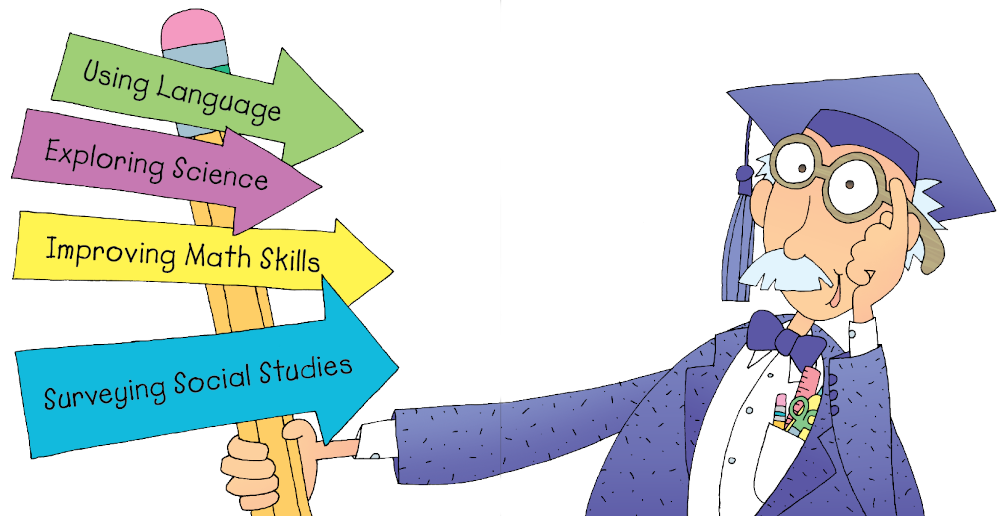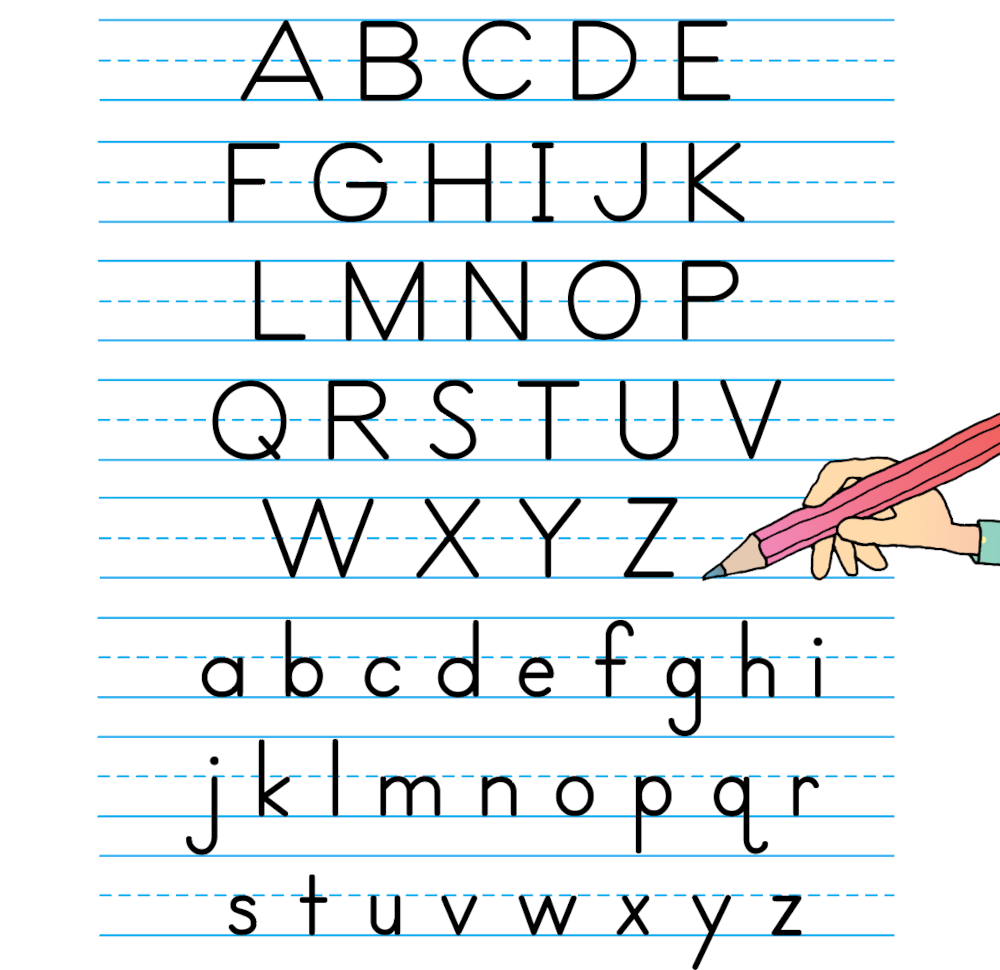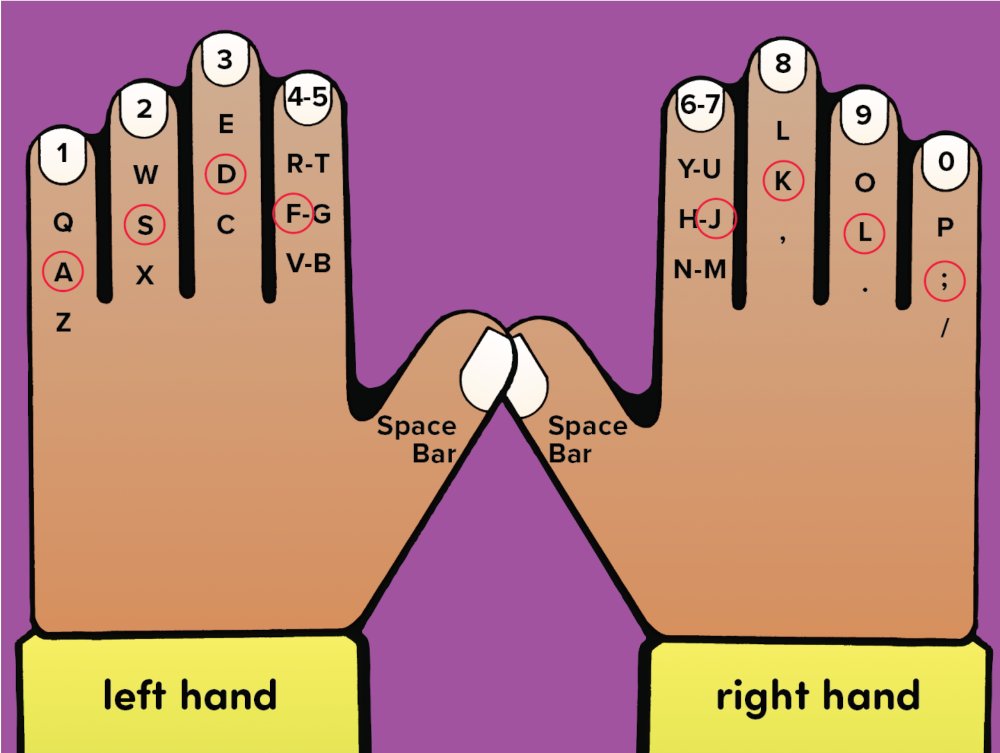WT 366
Page 366
Student Almanac

WT 367
Page 367
Using Language
English has more than 500,000 words! Why? It’s because English got words from many languages: German, French, Spanish, Latin, and the languages of indigenous people. English has been growing and changing for more than 1,000 years. Computers have given us new words like AI and cybersecurity, and young people have told us that a good song is a bop that slaps. In fact, Webster’s dictionary adds many new words to English every year!
In this section of the “Almanac,” you will learn more about the story of English. You will also learn how to use sign language and how to improve your handwriting and keyboarding.
WT 368
Page 368
How English Began
As you might guess, English started on the island of England. A very long time ago, Celtic languages were spoken on this island. Then Romans invaded and ruled the island for a long time. They left many things, including their language (Latin) and the Roman baths that you can still visit in Bath, England!
About 1,500 years ago, the Angles and Saxons invaded England. They were German tribes, so of course they brought their languages with them. Over time, the invaders’ languages mixed with the languages spoken on the island. As it happened, the Angles were the strongest tribe and had the most influence. The word England is really a form of Angle + land.
Later, the Normans from France invaded England. English added French words for government (congress), the military (lieutenant), and food (beef).
As English moved to the Americas, India, and Australia, it was influenced by many other languages, too: Spanish, Italian, Greek, and Dutch as well as indigenous tongues. You could say that English is a “melting pot” language because it includes words from so many different places.

WT 369
Page 369
The Printing Press
Early on, only very educated people could read and write. They usually read and wrote in classic Greek and Latin. The first books took a very long time to complete. They were handwritten, and writing materials were limited. Very old books were written on parchment, or animal skins!
Then the printing press was invented around 1440, and many more books became available. Books helped standardize the English language. (Standardize means “to make it common or the same.”) In other words, printed books helped make one form of English the accepted form. With books, more and more people learned to read and write.

English in America
When English people came to North America, they brought their language. The Native Americans, who were already here, added more words to English. They added words like moccasin, raccoon, and skunk. Native people from Central America added words like tomato, chocolate, and hurricane. The Spanish-speaking people who came to America added words like ranch and alligator.
New Words
New inventions and new ways of thinking have also added words to our language: firewall, cybersecurity, and wi-fi are examples of these words.
Today, English is a language of about 500,000 words. And, of course, our language will continue to grow as the world changes.
WT 370
Page 370
English from Around the World
Words from many languages have been added to English. This chart shows you some of these words.

WT 371
Page 371
Saying Hello and Good-Bye
There are about 250 language families in the world today. No wonder people sometimes have trouble speaking to each other, especially when they travel! Here are some “hello” and “good-bye” words that make things a little easier.

On Track
The words for saying “hello” and “good-bye” in different languages may look or sound alike. Many languages of today began as the same language thousands of years ago. That’s why many words are similar.
WT 372
Page 372
Using the Sign Language Alphabet

Using the Braille Alphabet

WT 373
Page 373
Improving Your Handwriting
Manuscript Alphabet

WT 374
Page 374
Continuous Stroke Alphabet

WT 375
Page 375
Cursive Alphabet

WT 376
Page 376

WT 377
Page 377
